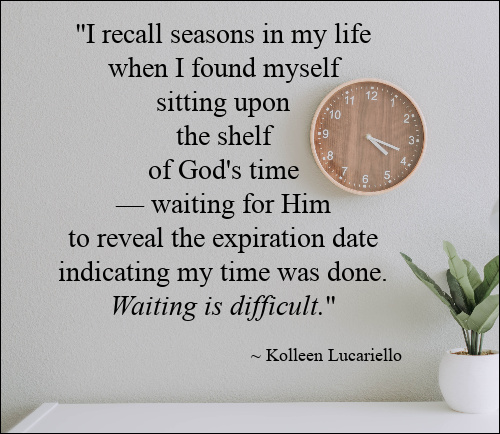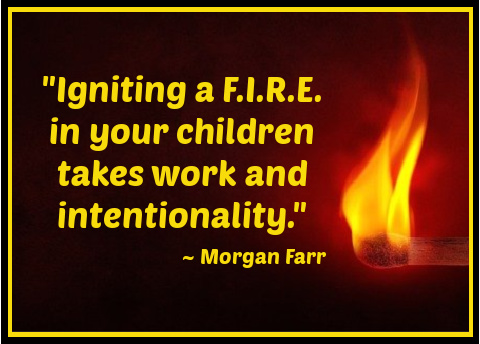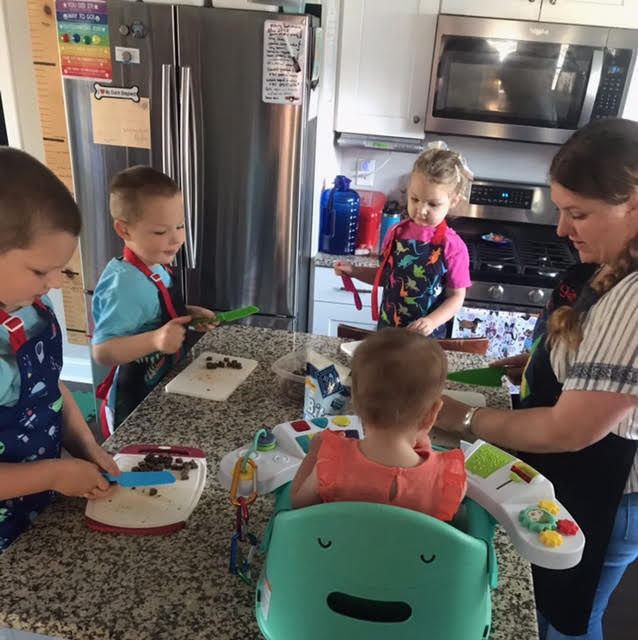Don't Confuse Being Responsible with Being Faithful
Debbie W. Wilson is both biblically sound and creatively practical. In this Christian Living UPGRADE, she shares the biblical way to deal with a misunderstanding about responsibility. "Do you carry an over-developed sense of responsibility?" Debbie asks.
"Do you carry an over-developed sense of responsibility?" Debbie asks.
"When I feel overwhelmed or weary, I usually discover I’m feeling responsible for something beyond my control."
Oh, ouch! I (Dawn) know exactly what Debbie means. Why is it such a hard lesson to learn?
Debbie continues . . .
My desire to do a good job can subtly turn into pressure to make someone happy.
The desire to do good work is admirable. However, the goal to make another person happy is beyond my control.
The Difference Between a Goal and a Desire
In order to help us understand where our responsibilities end and other people’s begin, some thought leaders have delineated between a goal and a desire.
A GOAL is something you want, and you control the means to reach it.
A DESIRE is something you want, but you don’t have control of all the variables to reach it. You need the cooperation of other people or circumstances to achieve it.
For example, let’s say you plan a special picnic for your family.
- You get up early to shred cheese for their favorite pimento cheese sandwiches.
- You hum as you spread your concoction onto slices of homemade bread.
- The picture of your family enjoying the fruit of your labor brings a smile as you pack a lovely quilt and colorful paper goods.
An hour before you leave, your son’s friend calls to invite him to the pool. He’s spent time with his friend, but not with the family.
You tell him he can go next time. Today is family time. Disappointment oozes out of his pores.
His body comes to the picnic, but not his heart.
You take a deep breath and hand out lunch on fanciful paper plates.
Your daughter whines, “I don’t like this kind of bread.”
You sigh. At least you have homemade chocolate chip cookies.
But when your son grabs the bag of cookies, the ones you stayed up to midnight baking, he shrieks, “They’re alive!”
To your dismay, the seal on the bag is not tight and ants found your cookies.
Now you’re ready to cry!
Did you fail? Was your effort a complete waste? That depends.
- If your goal was to make them happy, then yeah, you failed. They aren’t happy.
- But if your goal was to love your family, then, well done! You are a success.
Learn from Jesus
“Jesus said, ‘Come to me, all of you who are weary and carry heavy burdens, and I will give you rest. Take my yoke upon you. Let me teach you, because I am humble and gentle at heart, and you will find rest for your souls’” (Matt. 11:28-29 NLT).
Be gentle with yourself. Jesus is gentle with us. If we learn from Him, we’ll be kind with ourselves too.
Jesus doesn’t hold us responsible for things that lay outside our control.
So, neither should we.
Any goal that requires someone else’s cooperation can be blocked by those people. God doesn’t hold us responsible for what we can’t control. He asks us to be faithful to Him.
God doesn’t measure success by how things appear, but by how we live.
Faith pleases Him (Hebrews 11:6). When we love God and others through the power of the Holy Spirit, we can leave the results to God and know He is pleased with us.
And who knows, our faithfulness to trust God in the presence of disappointment may be our greatest witness to a watching family and world.
Are you feeling responsible for something beyond your control? What would it look like for you to exchange being responsible with being faithful?
 Debbie W. Wilson—drawing from her walk with Christ and decades as a Christian counselor and Bible teacher—mixes insight and encouragement to
Debbie W. Wilson—drawing from her walk with Christ and decades as a Christian counselor and Bible teacher—mixes insight and encouragement to  inspire readers to trust Christ with their lives. Her books include Little Faith, Big God, Give Yourself a Break, and Little Women, Big God. She and her husband Larry founded and run Lighthouse Ministries, a nonprofit biblical counseling, coaching, and Bible study ministry. Her two standard poodles spice up her life with affection and fun. Find free resources to refresh your faith at debbieWwilson.com.
inspire readers to trust Christ with their lives. Her books include Little Faith, Big God, Give Yourself a Break, and Little Women, Big God. She and her husband Larry founded and run Lighthouse Ministries, a nonprofit biblical counseling, coaching, and Bible study ministry. Her two standard poodles spice up her life with affection and fun. Find free resources to refresh your faith at debbieWwilson.com.
Graphic adapted, courtesy of Charles MacArthur at Pixabay.
 Post a Comment → Posted on
Post a Comment → Posted on  Thursday, July 29, 2021 at 9:04AM
Thursday, July 29, 2021 at 9:04AM  Debbie W. Wilson,
Debbie W. Wilson,  Faithful,
Faithful,  Faithful to God,
Faithful to God,  Faithfulness,
Faithfulness,  Goals,
Goals,  Outside our Control,
Outside our Control,  Responsibility,
Responsibility,  Responsibility vs. Faithfulness,
Responsibility vs. Faithfulness,  Upgrade with Dawn Upgrade Your Life
Upgrade with Dawn Upgrade Your Life  Faithfulness,
Faithfulness,  Spiritual Life
Spiritual Life 

















